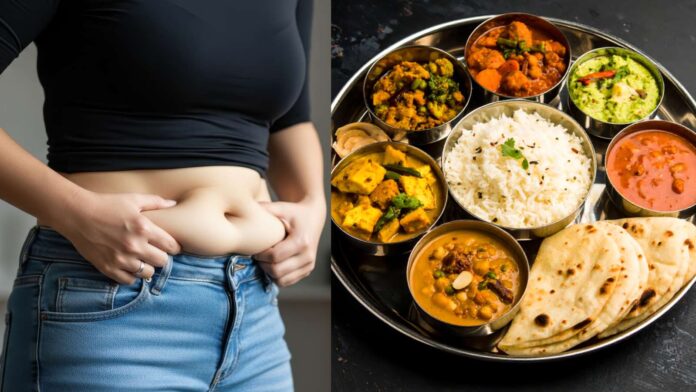An ICMR research finds the Indian eating regimen supplies 62 p.c of energy from carbs, among the many highest globally. Heavy consumption of white rice, wheat, sugar, and saturated fat, together with low protein, is rising diabetes and weight problems circumstances.
India is witnessing a silent however alarming shift in its consuming habits. From plates piled with polished rice and wheat chapatis to rising sugar consumption, the nation’s eating regimen has turn out to be more and more dominated by refined carbohydrates and unhealthy fat. A big-scale nationwide research by the Indian Council of Medical Analysis (ICMR-INDIAB), printed in Nature Medication, reveals that 62 p.c of every day energy for many Indians come from carbs. What makes this extra regarding is that these energy are sometimes poor in high quality and low in vitamins. The findings level to a troubling hyperlink between India’s eating regimen and the sharp rise in diabetes, weight problems, and metabolic dangers.
Carbs make up 62 p.c of Indian diets
The ICMR research, which surveyed over 1.2 lakh adults throughout 36 states and union territories, highlights a hanging dietary imbalance. On common, 62 p.c of every day energy come from carbohydrates, a lot greater than the worldwide suggestion of 45–55 p.c. Worse, most of those are low-quality sources comparable to white rice, milled wheat, and added sugar. Regional variations have been additionally famous—rice dominates within the South, East, and Northeast, whereas wheat is extra widespread in North and Central India. In distinction, nutrient-rich millets stay a staple in solely three states, like Karnataka, Gujarat, and Maharashtra, regardless of being linked with higher blood sugar management and better fibre content material.
Sugar consumption far past protected limits
Sugar consumption is one other pink flag. The World Well being Group (WHO) advises that added sugars shouldn’t exceed 5 p.c of complete energy, but 21 Indian states cross this threshold. Excessive sugar consumption is just not solely linked with weight achieve but in addition with insulin resistance, fatty liver, and dental points. Drinks like packaged fruit juices, sodas, and sweetened teas are silently contributing to this downside. Nonetheless, lowering sugar in on a regular basis diets might considerably reduce the danger of prediabetes, particularly in youthful adults who’re more and more exhibiting early indicators of metabolic illness.

An excessive amount of saturated fats, too little wholesome fat
Whereas India’s total fats consumption stays inside advisable limits, the standard of fats is regarding. The research discovered saturated fats consumption exceeded protected ranges in virtually all states, besides Jharkhand, Chhattisgarh, Arunachal Pradesh, and Manipur. Widespread sources embrace ghee, butter, palm oil, and fried snacks. Then again, more healthy fat, comparable to omega-3 fatty acids from nuts, seeds, and fish, are consumed in minimal quantities. Specialists clarify that whereas fats usually will get a nasty fame, not all fat are dangerous. Changing saturated fat with more healthy ones might enhance coronary heart well being, scale back ldl cholesterol, and support in weight administration.
Protein deficiency
Maybe some of the worrying facets is the dearth of high quality protein in Indian diets. Many meals are carb-heavy, with proteins taking part in a secondary position. Dr R.M. Anjana, President of the Madras Diabetes Analysis Basis and lead writer of the research, emphasised that diets excessive in refined carbs and low in protein are placing hundreds of thousands in danger. Plant-based proteins like legumes, lentils, soy, and dairy are under-consumed, whereas animal protein consumption stays restricted in a number of areas. The research means that changing simply 5 p.c of every day energy from carbs with plant or dairy proteins might considerably scale back diabetes and prediabetes danger.
More healthy substitutions can reduce danger
Specialists agree that merely swapping rice for wheat or including extra millets is just not sufficient. A broader shift is required, lowering complete carb consumption, balancing meals with protein and fibre, and changing saturated fat with more healthy choices. Small however constant adjustments, like slicing down on added sugars, together with extra pulses, nuts, and dairy, and making an attempt millet-based recipes, might make a giant distinction.


